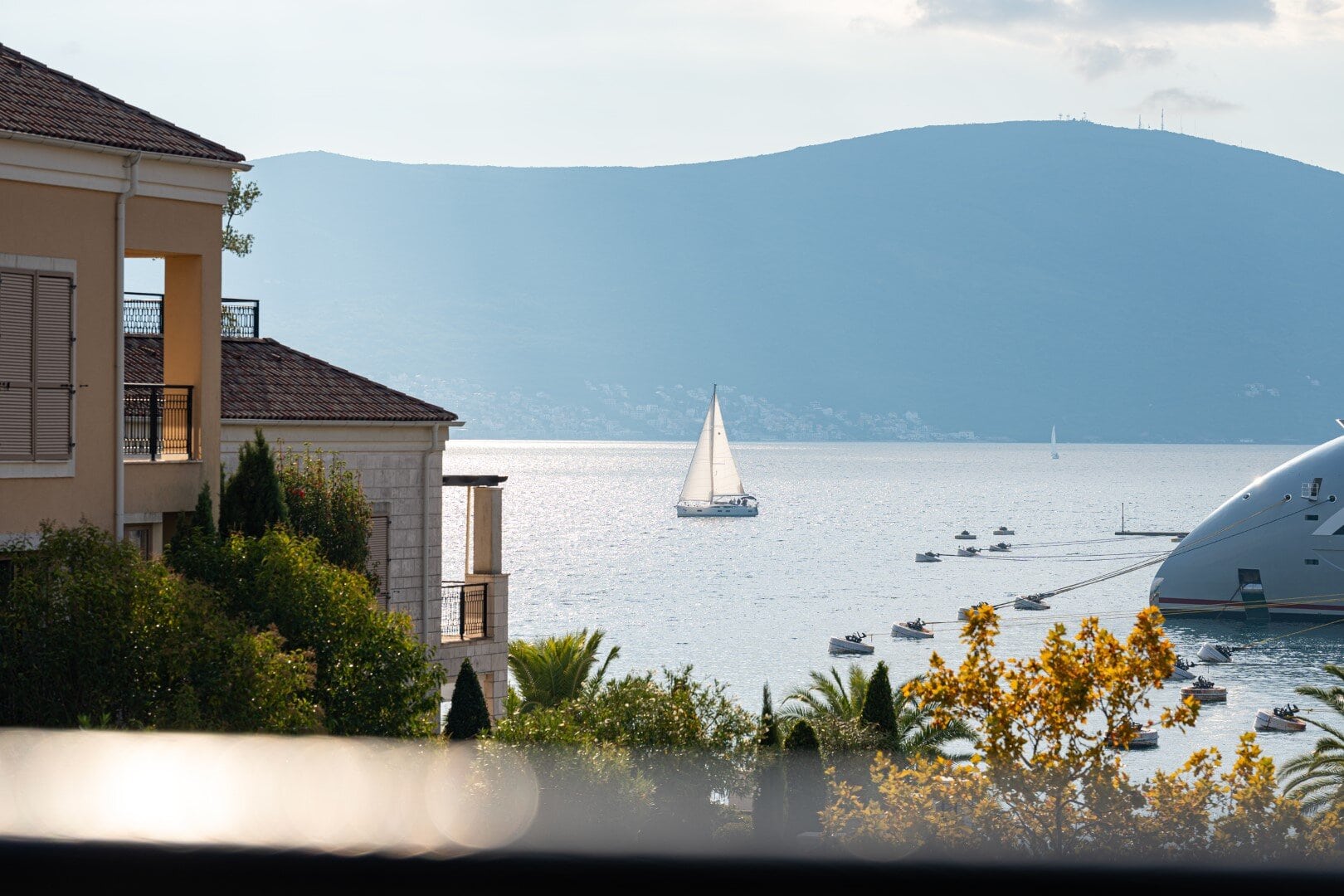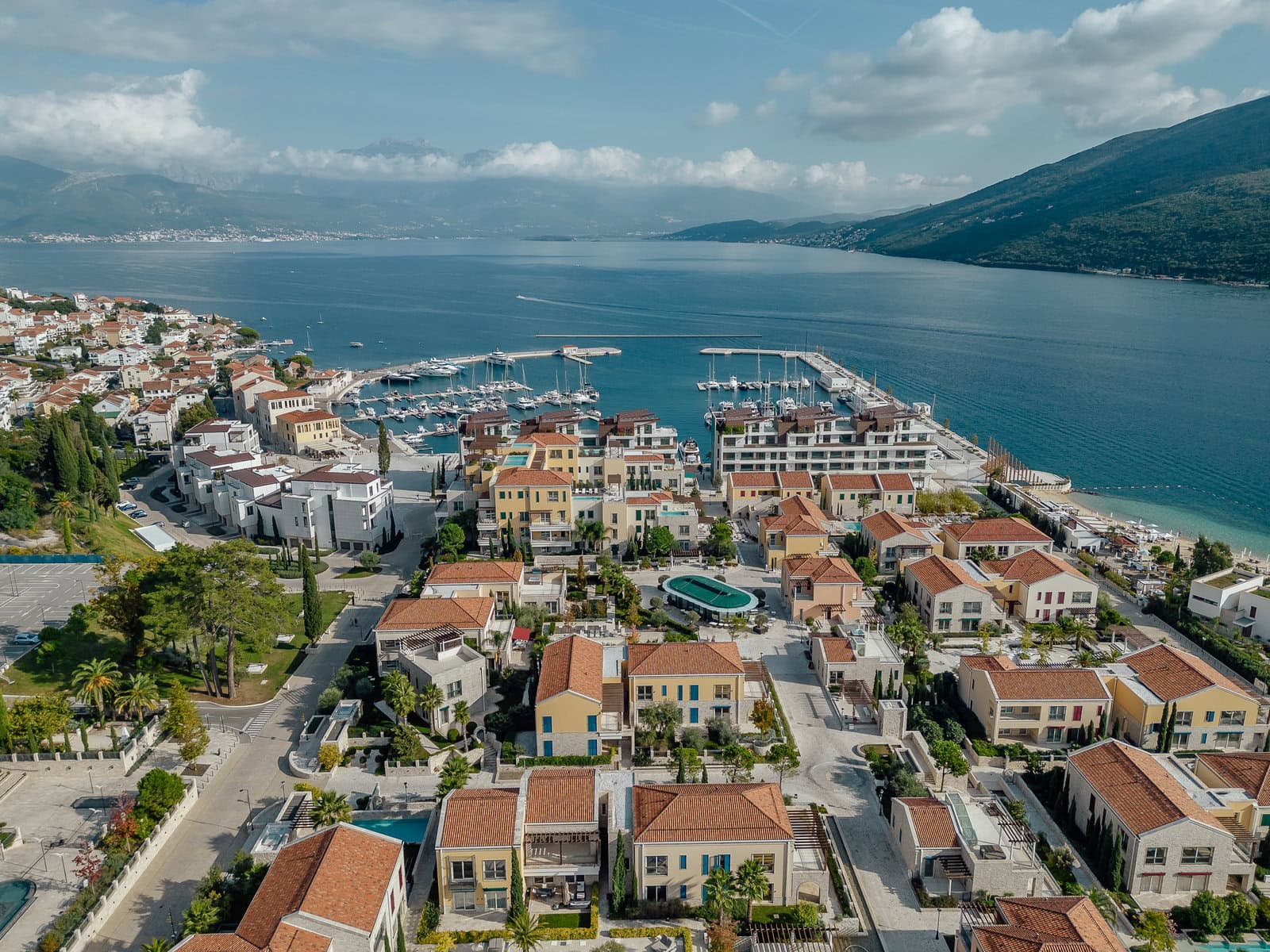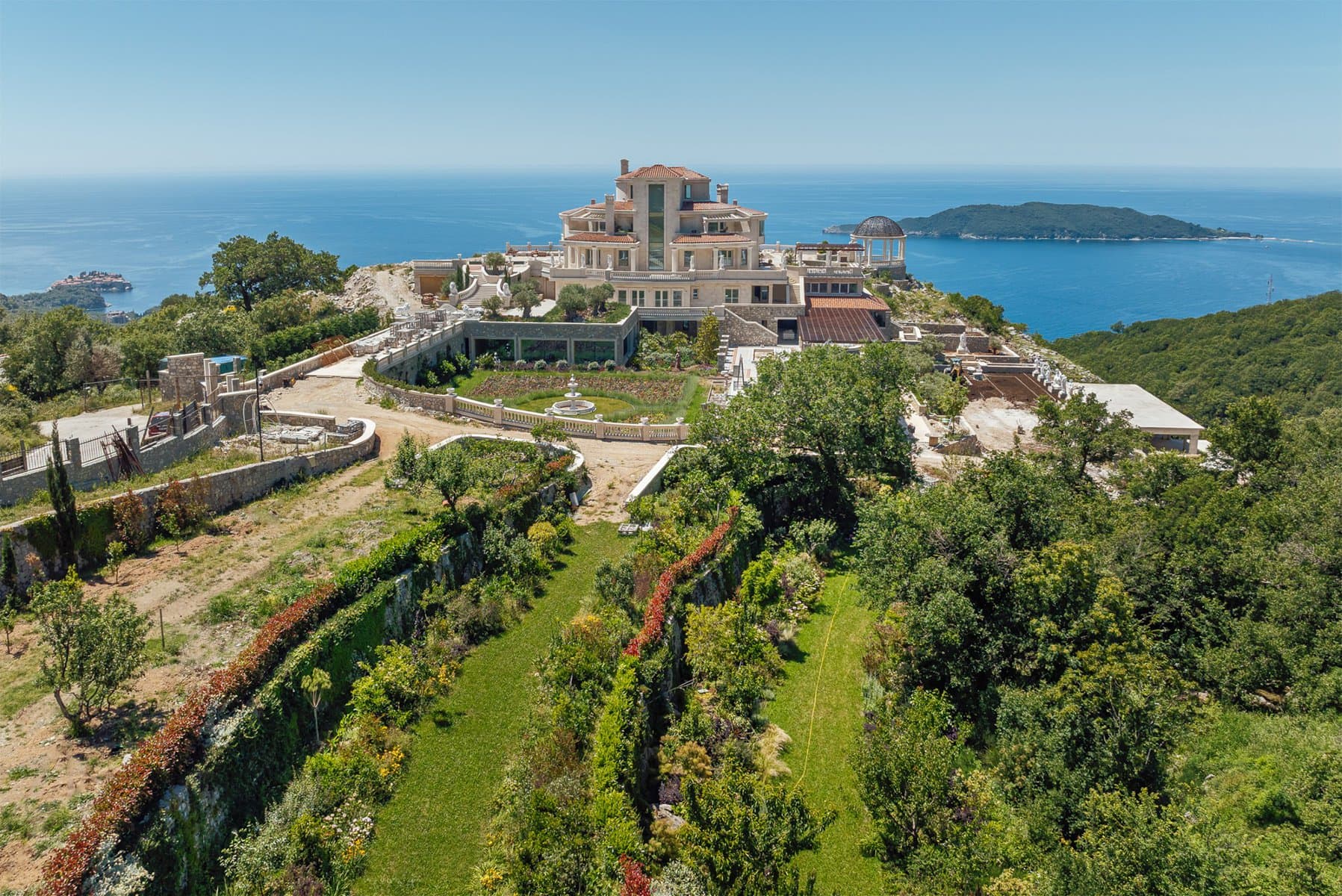
Table of Contents
Montenegro’s dramatic coastline, medieval old towns and small, sun-baked marinas have made it one of Europe’s most attractive destinations for short breaks, second homes and long-term relocation. Yet any sensible buyer, family or traveler asks about Montenegro safety. It is the same practical question early on: how safe is Montenegro — for everyday life, for children and solo female travellers, for nights out, and for investing in real estate? The short answer is: for most visitors and residents Montenegro is a safe country by many measures, but like any place it has variations by place and circumstance, and there are particular risks (petty crime, seasonal tourist pressure, and a continuing challenge with organised crime and money-laundering that the state and EU partners are actively addressing) that anyone considering travel or property purchase should understand before making decisions.
On a national scale the picture is nuanced. Official statistics and judicial reports show that Montenegro’s police and courts process a steady number of criminal cases each year; property-related crime and petty theft cluster around busy urban areas and peak tourist sites rather than being evenly distributed across the country. International travel guidance from major foreign ministries is typically measured: the U.S. State Department advises travellers to “exercise normal precautions” in Montenegro, a level of warning that aligns Montenegro with many European countries where most visits are trouble-free but common-sense vigilance is still recommended. That assessment reflects reality for the majority of travellers — violent crime against foreigners is uncommon, but pickpocketing and opportunistic theft can rise sharply in crowded summer spots.
Montenegro Travel Advice

f you are a tourist, the single most common nuisance you will hear about from locals and expats is petty theft — wallets, phones and unattended bags in busy promenades, market lanes and night-time entertainment districts.
Historic centres like Budva and Kotor are wonderful to explore but they are also compact, often crowded, and therefore convenient spots for thieves working in teams.
Families travelling with children should be especially attentive in those areas: keep children close in crowded alleys, avoid leaving valuables unattended on beaches, and use hotel safes for passports and spare cards. Local police presence in major tourist hubs rises substantially during high season and many hotels and marinas have private security, but the risk of quick grab-and-run theft remains the most frequent source of complaints from visitors.
Safety at night in Montenegro
Solo Female Travelers Safety in Montenegro

Female travelers often worry about harassment and the conspicuousness of solo travel. Montenegro is conservative in parts and relaxed in others; overall, it is not routinely singled out as a high-risk destination for women, but cultural and regional differences matter. Small towns and older generations can be more traditional in dress and behaviour, which sometimes leads to stares or intrusive remarks rather than physical danger. In tourist areas and international marinas, you will find an increasingly cosmopolitan, welcoming environment.
Still, solo female travelers should exercise normal gender-aware precautions: stay in well-reviewed accommodation, avoid isolated beaches or roads at night, and be cautious about accepting invitations from strangers — the same advice that reputable travel resources and foreign ministries offer for much of southern Europe.
When women travel together or with family, the experience in Montenegro is often comfortable and straightforward; solo female travel is feasible and common similar to any other European country, but it benefits from the usual travel sense and simple precautions.
What does that mean in practice for your property purchase and investment security in Montenegro?
First, choose a reputable, fully licensed real estate agent and a conveyancer (or lawyer) who will run the standard legal checks on title, liens and seller provenance. In recent years Montenegrin courts have used temporary measures — freezes on real estate and bank accounts — in organised-crime cases, which is good evidence that the system can act when illegal activity is identified, but also a reminder that buyers should perform careful vetting before purchase. Newer, master-planned developments such as Porto Montenegro in Tivat and Luštica Bay operate as controlled, amenity-rich enclaves with private security, CCTV, and homeowner associations that add layers of personal and asset protection; purchasers in such developments often cite a higher comfort level precisely because these communities resemble gated neighbourhoods with professional management. Even so, title verification, checking for encumbrances and post-purchase compliance (tax filings, official registration) remain non-negotiable steps.
The Safest Zones in Montenegro and the Best Places to Life & Invest
If you are weighing where in Montenegro to live or buy, location choice is the single most influential safety decision.
Porto Montenegro and the newer marina-centric developments in Tivat are widely regarded as among the safest pockets: they are private, heavily serviced and have direct investment and management structures that maintain high standards of security and public order.
Luštica Bay and other branded coastal projects emphasise community policing, gated access and professional property management that make them reassuring to families and international buyers. Kotor and Perast have the charm and small-town atmosphere of UNESCO heritage areas but their narrow streets and tourist crush make petty theft more likely during the summer months. Budva is lively and glamorous but busy, and many residents will tell you to expect the same petty crime patterns found in Mediterranean party towns. Podgorica, as an inland capital, offers broader employment and services but, like all capitals, contains districts where vigilance after dark is sensible. The southern coastal town of Ulcinj has a distinct character and a strong local culture; while not uniquely unsafe, its border adjacency and different socio-economic profile make local knowledge and sensible precautions advisable.
Montenegro’s safety into international perspective
A useful way of putting Montenegro’s safety into international perspective is to compare it with nearby or similarly sized places. Monaco (Monte-Carlo) sits at the top of European safety indexes thanks to intense security, tiny size and extraordinary wealth: it is significantly safer than almost any other Mediterranean jurisdiction for day-to-day street crime and has institutional resources focused on protecting high-net-worth residents and visitors.
Croatia and Italy, on aggregate, score differently by region: Croatia’s coastal towns are often seen as very safe for tourists — low violent crime and effective policing in tourist centres — while Italy’s picture varies dramatically between well-policed tourist cities and more challenging urban districts. On many common measures (perception indexes such as Numbeo’s crime and safety scores) Monaco outpaces Montenegro and both Italy and Croatia, while Montenegro’s indicators tend to sit between the broader safety profiles of Croatia and parts of Italy — safer than the riskiest neighbourhoods in large Italian cities but behind Monaco’s exceptional levels of private and public security. These comparisons are indicative rather than definitive, because methodologies and data sources vary, but they do offer a practical framework: expect Monaco to be a different class of security, and expect Montenegro to feel broadly comparable to mid-level tourist areas in Croatia and Italy, with local pockets of higher or lower risk.
Montenegro safety for children
For families with children the core safety considerations are straightforward: choose accommodation with secure access, be mindful of road safety (some coastal roads are narrow and drivers can be brisk), and pick neighbourhoods with good medical facilities and child-friendly amenities. Tivat, Kotor and parts of Herceg Novi have family-oriented communities and international schools or clinics nearby; coastal resort developments often include security teams and concierge services that alleviate many day-to-day concerns. Parents should still model normal city caution: supervise children near water, be cautious on late-night promenades, and register important documents in a hotel safe rather than carrying them during excursions. Health-care access is improving but remains better in larger towns than in remote mountain villages, so proximity to services is a sensible factor when choosing permanent residency.
Ultimately, Montenegro’s safety profile for travellers and prospective residents is a story of contrasts: radiant natural beauty and warm hospitality set against the seasonal pressures of tourism and the persistent, though addressable, challenge of organised crime in the financial and property sectors. For the culturally curious buyer or family moving here, the practical checklist is familiar — do due diligence on property, prefer managed communities for peace of mind, keep valuables secure in tourist seasons, and treat late-night urban exploration with the same prudence you would apply in any European city. If you prioritise exclusivity and security, options such as Porto Montenegro and Luštica Bay offer an attractive blend of amenity, private security and community governance; if you prefer the intimate authenticity of Kotor or Budva, accept a slightly higher burden of daily vigilance in return for the incomparable atmosphere these towns provide. Recent EU and international policing initiatives show that Montenegro is not oblivious to its security challenges — on the contrary, authorities and international partners have intensified cooperation and legislative reforms to make the country safer for residents, tourists and investors alike.
Montenegro Real Estate: Pre-Purchase Security and Due-Diligence Checklist
Buying property in Montenegro is a straightforward process for foreign nationals, but attention to legal and security details is essential. The country has made great strides in transparency and regulation, yet a thorough vetting process remains the hallmark of a sound investment.
Verify Ownership and Title
Always confirm the seller’s ownership through the official Cadastre (Land Registry). A licensed lawyer or notary can ensure there are no outstanding liens, inheritance disputes, or unresolved co-ownership rights. Avoid verbal agreements and request certified copies of title deeds.
Conduct Legal Due Diligence Early
Before paying a deposit, have your legal representative perform a title search, check urban planning documents (especially for coastal plots), and verify that all construction and usage permits are valid. Properties built before 2006 may have incomplete documentation — an issue your lawyer should flag before signing.
Work Only with Licensed Real Estate Agents
Choose agencies registered with the Chamber of Commerce of Montenegro or international networks such as Sotheby’s Realty. Licensed agents must follow disclosure standards and can provide an additional layer of assurance in verifying property provenance.
Understand the Development Structure
If purchasing in a branded development such as Porto Montenegro, Luštica Bay, or Portonovi, confirm that the property is part of a registered project with transparent management and security systems. These developments offer 24/7 surveillance, access control, and property management services that substantially enhance both personal and investment security, but it does not mean that surrounding cities are unsecure
Avoid Cash Transactions
Montenegrin law requires high-value property purchases to be processed through bank accounts to comply with anti-money-laundering regulations. Always use a reputable bank transfer and keep records of all payments. Your notary will handle the official transfer and registration once funds are received.
Title Insurance and Escrow
Consider title insurance for extra protection, especially if purchasing outside the main luxury developments. For peace of mind, use an escrow arrangement through a local bank or your lawyer’s trust account until all documents are verified and notarized.
Review Community and Maintenance Agreements
In gated resorts or residential complexes, review homeowner association rules, maintenance fees, and security provisions. These documents outline services such as 24-hour guard patrols, CCTV, and emergency support — crucial for families or second-home owners who spend part of the year abroad.
Evaluate Area Safety and Infrastructure
While Tivat, Luštica, Kotor Bay, and Herceg Novi offer excellent safety and management standards, some inland or border areas may have limited infrastructure or slower emergency response. A brief stay in the area before purchase helps assess noise levels, lighting, and security presence at night.
Confirm Tax and Residency Obligations
Engage a local accountant to clarify annual property taxes, utility fees, and any obligations tied to your residency or investment visa. Montenegro offers competitive tax rates and investor-friendly residency options, but compliance is key to maintaining a secure legal standing.
Register Promptly After Purchase
After notarization, the transfer must be recorded in the Land Registry. Ensure your name appears on the official extract and that all utilities are transferred to your ownership. This final step is essential for full legal and security protection.
In Montenegro’s growing luxury property landscape, careful due diligence is not a sign of mistrust — it is the foundation of confident ownership. With the right legal and professional support, buyers can enjoy both the serenity of the Adriatic coast and the reassurance that their investment is protected under a modern, transparent legal system.





